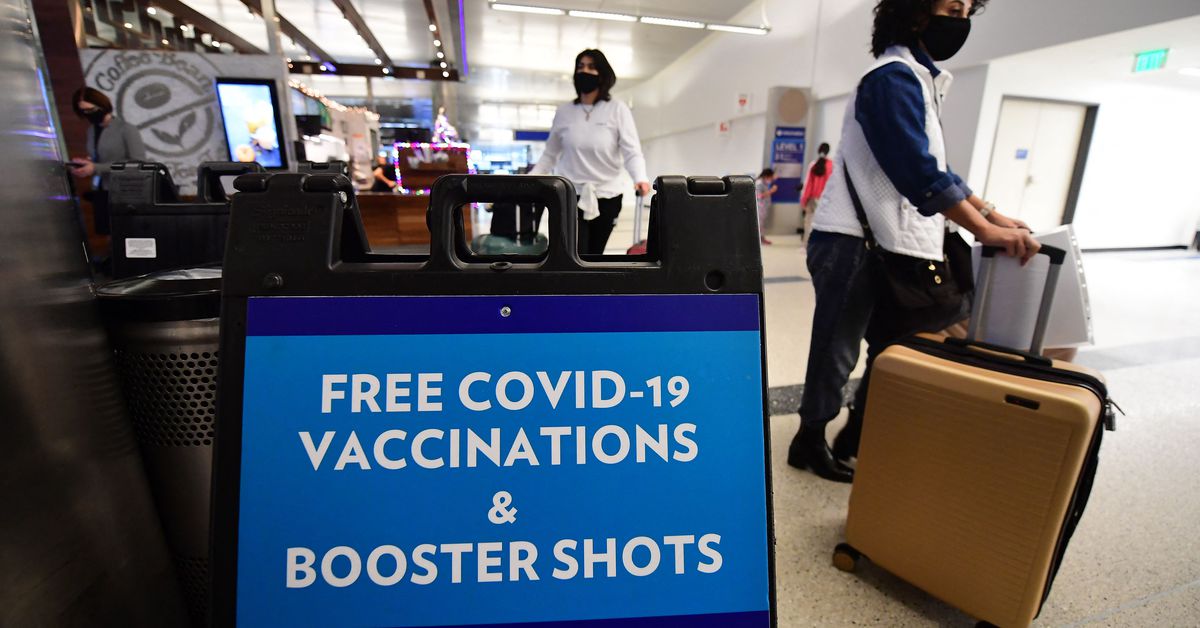The US has a booster problem. Less than half of all American adults — 42 percent — say they have received an additional dose of a Covid-19 vaccine,
The US has a booster problem. Less than half of all American adults — 42 percent — say they have received an additional dose of a Covid-19 vaccine, according to the most recent Kaiser Family Foundation survey. Among vaccinated people, that share is 70 percent. Better but a long way from ideal.
That is in spite of evidence that an additional dose provided more protection against the omicron variant. Even among all Americans over 65 years old, the group most likely to see a drop in effectiveness from the initial two doses, the percentage that’s received booster shot is 66 percent. The US vaccination campaign is now trailing far behind our peers in the United Kingdom, where more than 85 percent of people over 65 have gotten their booster.
As Sarah Zhang wrote in the Atlantic earlier this month, the most obvious pandemic strategy for the US going forward is to vaccinate and boost more people, especially the elderly who are most at risk. Eric Topol, the director of the Scripps Research Translational Institute, said the lagging booster rate “has been one of the most serious disappointments” in the US response.
But why has it been such a struggle? Digging into the KFF polling data, it appears the United States has two distinct challenges in boosting more people.
One problem is a matter of convenience and timing. Some people say they are not yet eligible for a booster because their second dose was too recent and/or they face practical obstacles to getting another shot, such as taking time off work or finding an appointment.
The other may be a thornier problem: Some of the people who are vaccinated but not boosted say they don’t think boosters work. They have heard stories about breakthrough infections among the vaccinated and decided that it isn’t worth the time and effort to get another shot.
Let’s take them one at a time.
Part of the issue is timing: The US is still vaccinating new people every day, so some people haven’t had enough time pass since their second shot to get their third. The CDC recommends people wait five months before receiving a booster. Among people who are vaccinated but not boosted, about 40 percent say they will get a third shot as soon as they can.
The time restriction seems to be the biggest thing holding back people who want to get their boosters ASAP or are generally open to it (saying they want to wait and see). But other factors are at play. Other common reasons for not getting a booster among that group are being too busy, not having enough time to get the shot, and not having gotten around to it yet.
Black and Hispanic Americans are more likely than white Americans to say time or convenience has held them back from getting boosted. Public health experts have been saying for months that giving people paid sick leave to people who do want to go get their vaccines would be an easy way to increase vaccination rates.
Those figures give some reason for optimism: A lot of people do want to get boosters and say they will, especially if it can be made more convenient.
But there are some worrisome signals in the survey data as well. About 40 percent of vaccinated but not boosted Americans say that they will not get another dose under any circumstances or would do so only if it’s required.
Among that group, there are two dominant reasons given: Either people don’t think they need the booster and aren’t at risk from Covid-19 (22 percent of the definitely not/only if required cohort) or they don’t think boosters are effective because vaccinated people are still getting sick (19 percent).
:no_upscale()/cdn.vox-cdn.com/uploads/chorus_asset/file/23265809/reasons_for_not_getting_a_booster_include_not_feeling_it_s_necessary_not_being_eligible_and_doubting_effectiveness.png)
Kaiser Family Foundation
Political polarization may also be playing a critical role in these sentiments: Among the vaccinated but not boosted Americans, a much smaller share of Republicans say they will get their booster as soon as they can (18 percent) compared to independents (35 percent) and Democrats (58 percent).
Some of this persuasion problem has been self-created by the government and public health authorities. There has been confusion about the booster guidelines, about the nature of breakthrough infections, and a general distrust toward public health authorities that has grown during the pandemic because of an ongoing failure to be direct and honest with the public from the beginning.
But it also reflects the informational echo chambers that many Americans live in, where stories that support a preferred viewpoint (the vaccines aren’t effective) take prominence over the numerous studies that affirm the value of getting your shots.
The takeaway should be that the US can take simple steps — giving people time off or following up when it’s time for somebody to get their booster shot — to increase the share of its population who have full protection against Covid-19.
But it will be hard to reach the standards set by the UK and other wealthy countries so long as many Americans don’t trust the information given to them by public health institutions.
